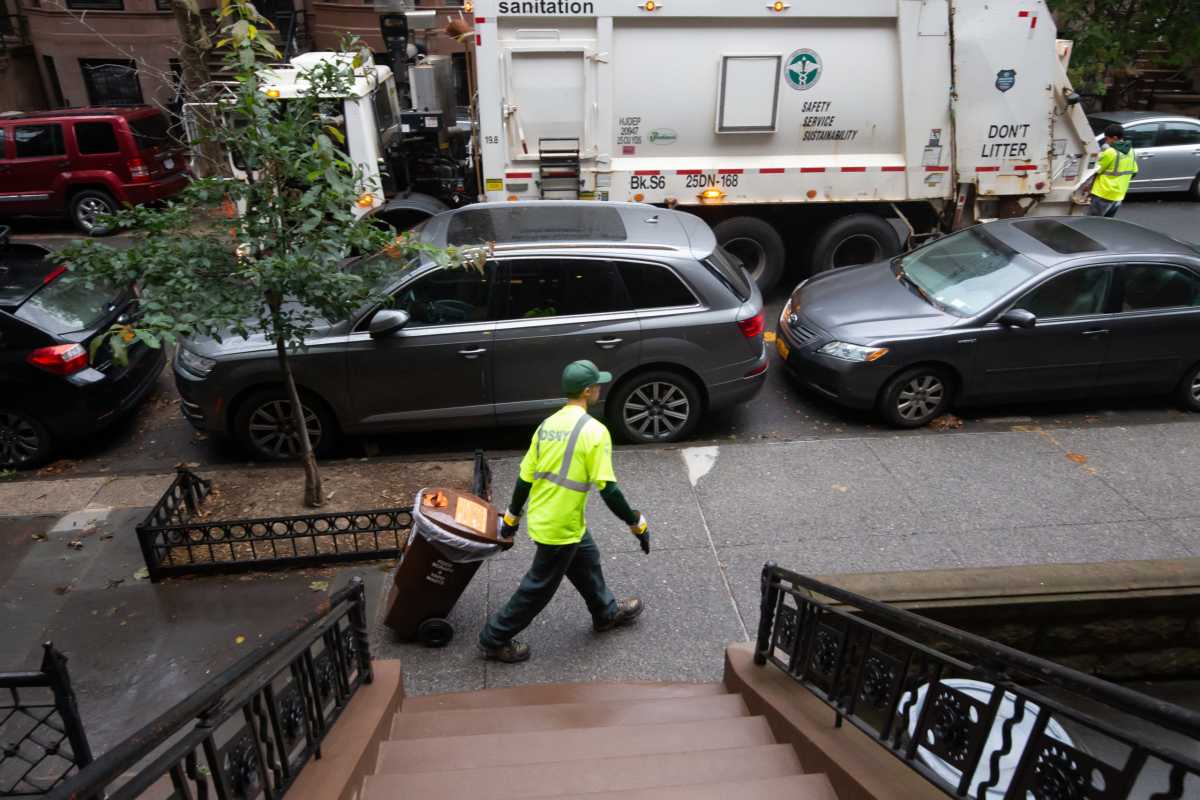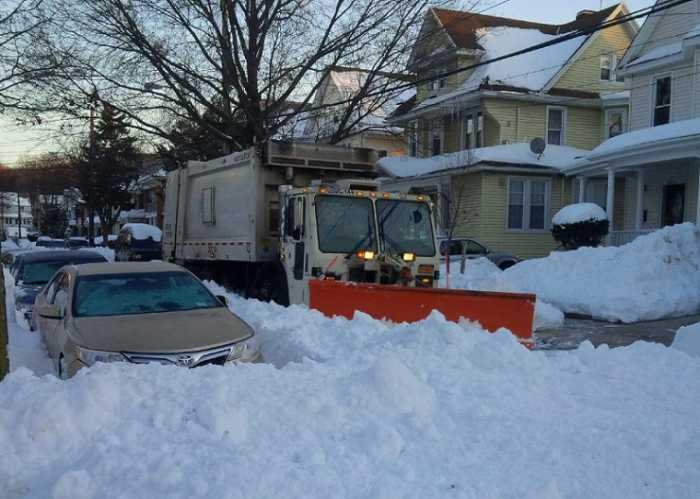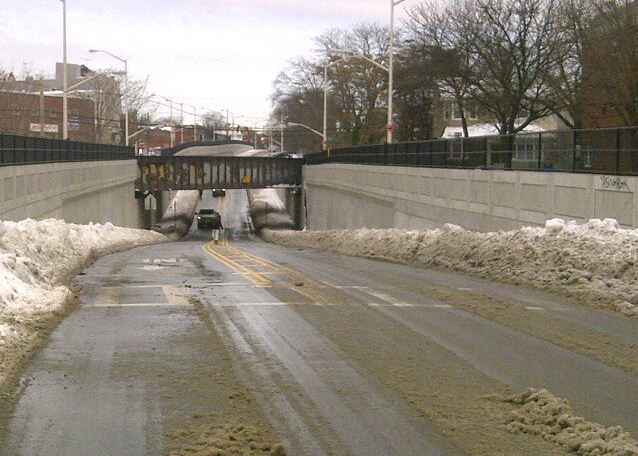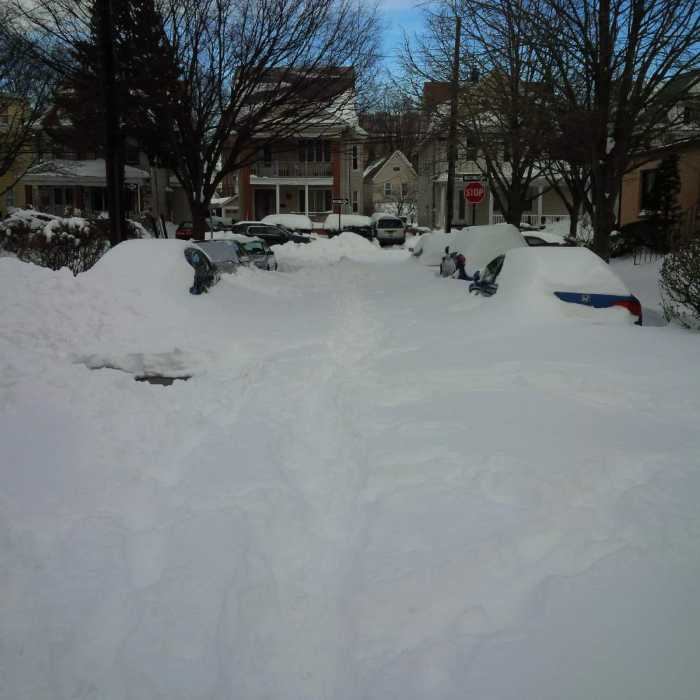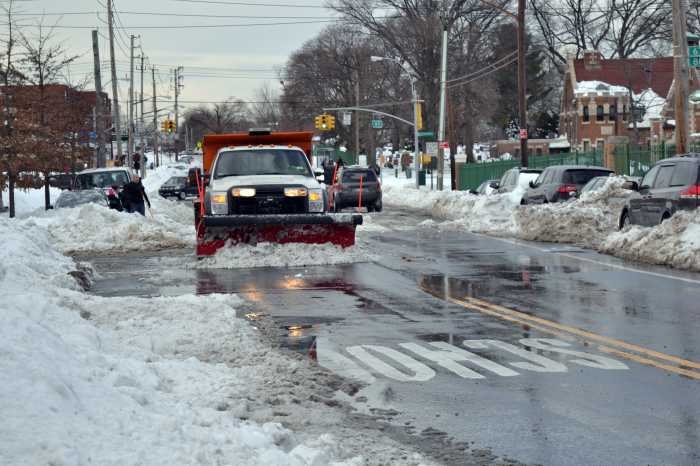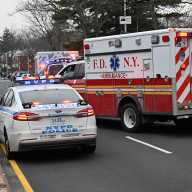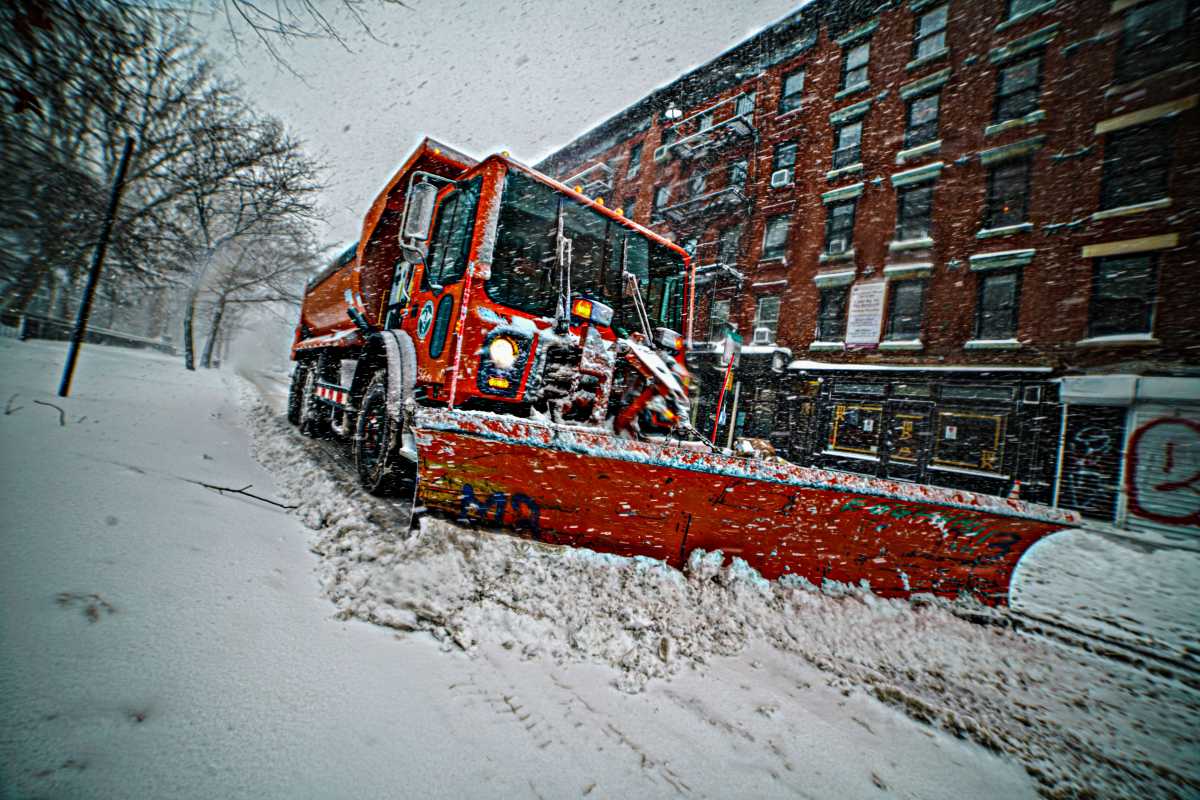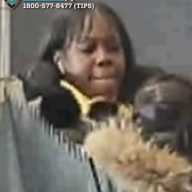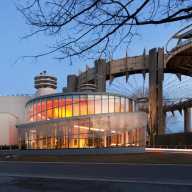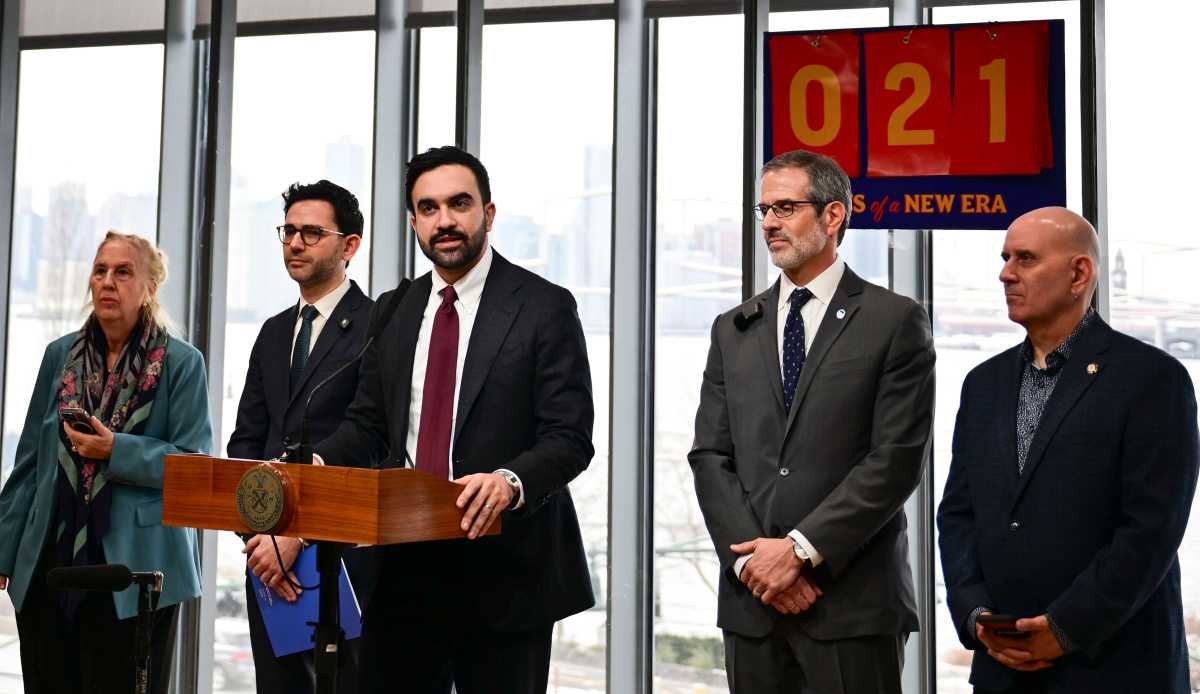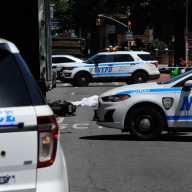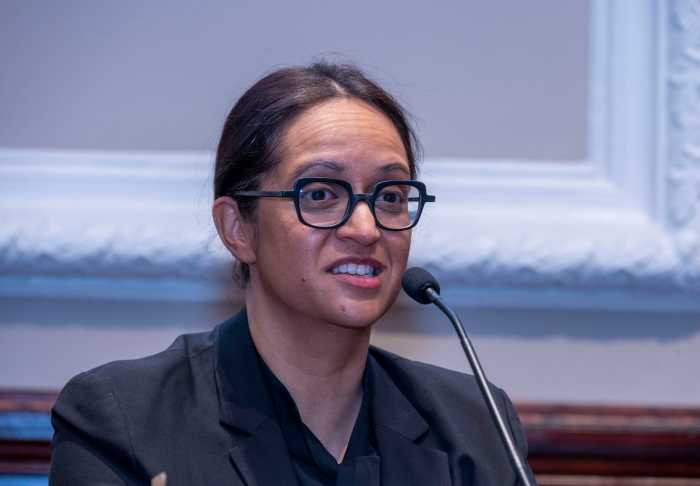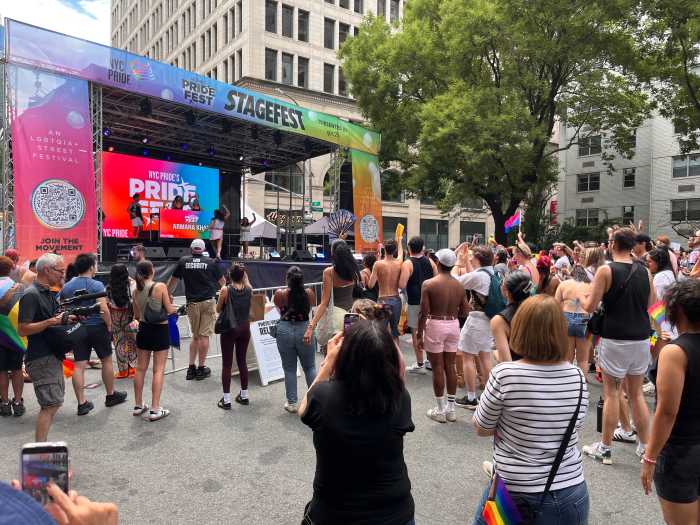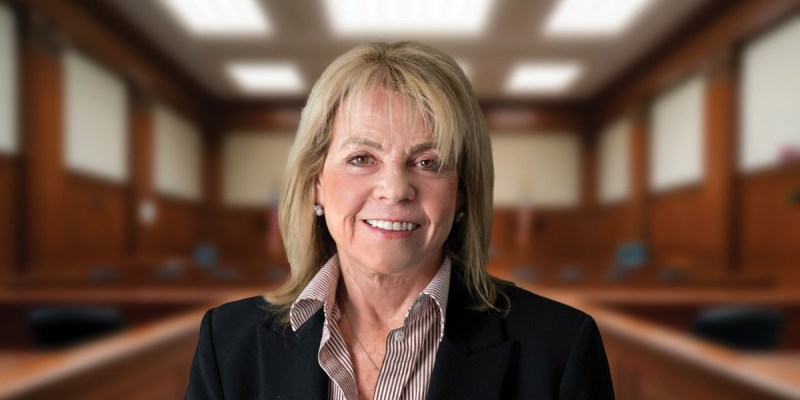A Department of Sanitation (DSNY) community outreach coordinator explained the new curbside composting collecting initiative slated to begin in Queens next month and fielded questions regarding the program during the Thursday, Sept. 8, Community Board 2 meeting.
The initiative will begin on Monday, Oct. 3, and will enable Queens residents to turn their food scraps and yard waste into compost and renewable energy.
The community board heard from DSNY Community Outreach Coordinator Sid Berraha, who explained the department’s plan for rolling out the initiative and its benefits.
Queens will also be the only borough to avail of the composting collection, according to Berraha.
Mayor Eric Adams initially announced the city would launch curbside organics collection for all residents of the “World’s Borough” starting this fall.
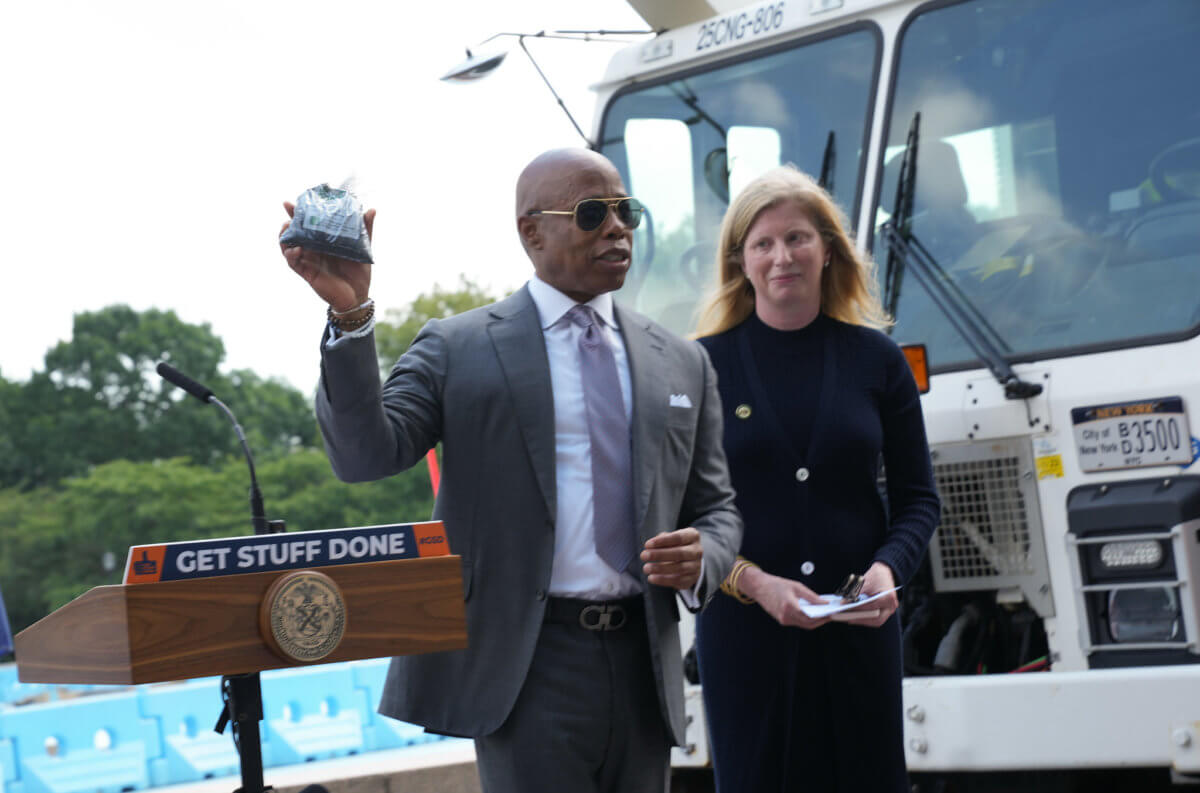
Berraha explained that residents will separate food scraps, food-soiled paper products and yard waste — also referred to as organic materials — into a separate bin which sanitation workers will collect every week. From there, they will be turned into compost and renewable energy.
Berraha said that curbside composting will be coming to every house in Queens.
“The service is going to be coming to every residential building in Queens. Currently, it’s voluntary, meaning there are no fines for not participating, but we’re encouraging all residents to participate,” Berraha said.
The community board heard that essentially all food and food scraps qualify to be composted.
“At the Department of Sanitation, we have a saying which is ‘if it grows, it goes,'” Berraha said.
Residents will also be able to compost paper soiled with food products such as coffee filters, tea bags and paper plates. Any yard waste like dead leaves and dead plants can also be disposed of.
DSNY conducted a waste characterization study in 2017, which concluded that more than a third of all trash that New Yorkers throw away is food scraps, food-soiled paper and yard waste. When this organic material ends up in a landfill, it decomposes and creates methane gas which is a greenhouse gas that is more than 20 times more potent than carbon dioxide.
Berraha told the meeting attendees that by composting, residents will not only offset these gases but also create a nutrition-rich product, compost, as well as renewable energy.
“Like with recycling, you’re creating a resource out of something that would otherwise be waste,” Berraha said.
The service will run from the first week in October, beginning Monday, Oct. 3, and will run through late December, when it will take a three-month pause for snow operations before beginning again in March 2023.
Community board member Danielle Brecker had concerns about larger residential buildings and asked whether they would receive more than one composting bin to accommodate their size. Brecker also asked what tenants can do in the case their landlord doesn’t sign up to receive a bin for the service.
Berraha said that in the case of larger buildings, there is no need to do anything, as a bin will be issued automatically. For a smaller building, tenants can order a bin for free by Oct. 1. It doesn’t matter what your role is in the building — tenant, super or landlord — anyone can order a bin, Berraha said.
After that, it is simple to participate, according to Berraha. Residents simply separate the organic from other trash into a separate bin which will be collected by workers weekly.
Community Board 2 represents the areas bounded:
North: Western prolongation of Queens Plaza North to the East River, Queens Plaza North, Queens Boulevard, the Northern Property Line of Sunnyside Yards, Woodside Avenue, Northern Boulevard
East: Brooklyn Queens Expressway, New York Connecting Railroad
South: Calamus Avenue, Maurice Avenue, Maspeth Avenue, 49th Street, Maspeth Creek, Newtown Creek
West: East River

